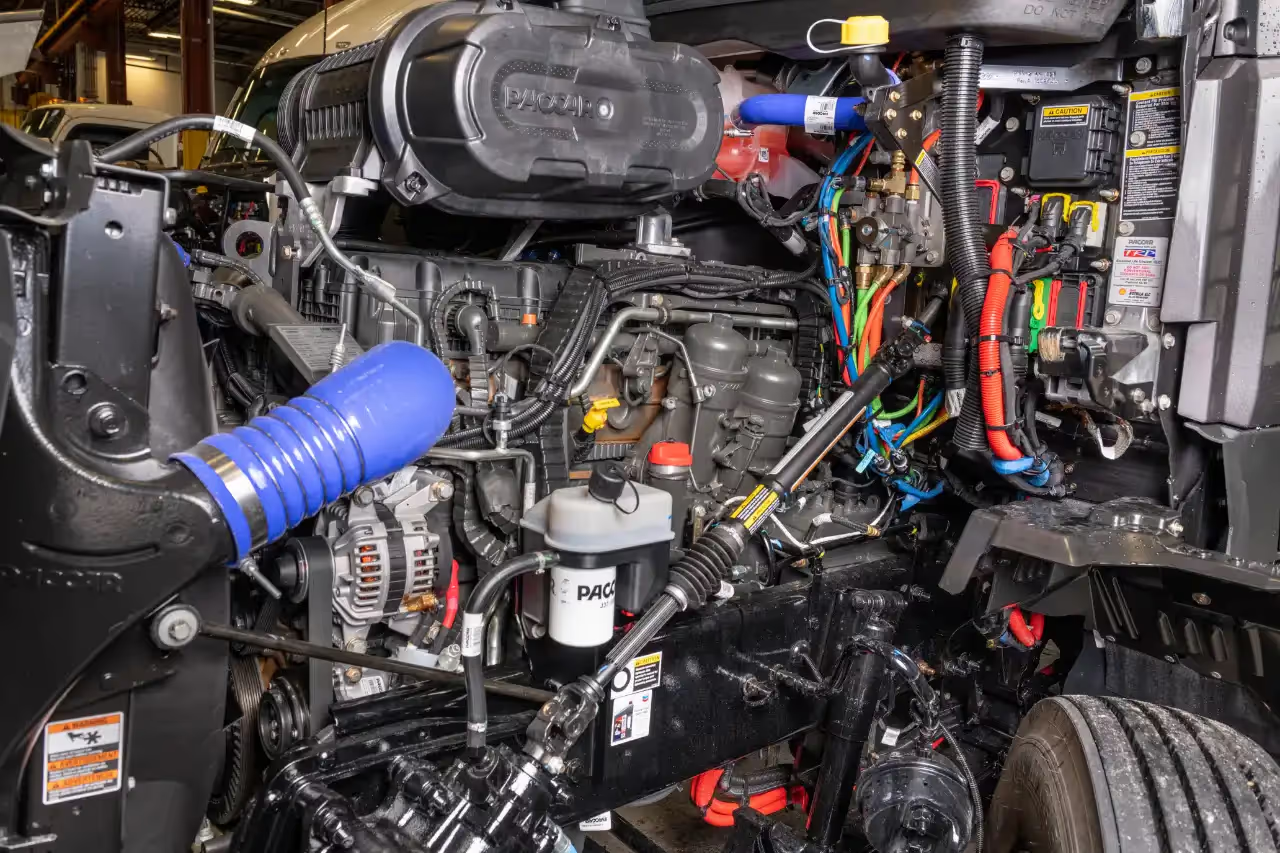Adrenaline Diesel Blog
Engine Maintenance Tips for the Peterbilt 379: Ensuring Optimal Performance


The Peterbilt 379 stands as a legendary and iconic truck, despite being out of production since 2007. Its powerful engine configurations, robust builds, and unwavering reliability have earned it the respect and trust of countless drivers. But even the most formidable machines require consistent care to maintain their peak performance and tackle demanding deliveries with ease, especially when it boils down to engine maintenance.
This guide delves into the essential practices you need to know to keep your Peterbilt 379 engine running smoothly and efficiently. From understanding the impact of engine displacement on maintenance needs to the importance of regular cleaning and fluid service, we'll equip you with the knowledge and tools necessary to extend the lifespan of your engine, optimize its performance, and conquer challenges with confidence.
The Peterbilt 379 boasts a range of powerful engine options, each with its own unique characteristics and maintenance requirements. Before buying a used Peterbilt 379 or swapping the current engine in your truck, it's crucial to familiarize yourself with your specific engine and its needs.
One factor to consider is engine displacement. Larger displacement engines, like the Caterpillar C15 or Cummins ISX, often require less frequent engine maintenance. This is because they typically have more robust components designed to last longer and operate with longer service intervals. Plus, with stricter emissions regulations coming along, fleet managers are already spec’ing their trucks with smaller displacement engines.
Even if you do swap for a new, smaller engine, tuning down your engine with the help of professional ECM tuning services can help you avoid excessive engine strain, thus preserving the components of your engine. In other words, diesel power is still king in the heavy-duty truck industry, but don’t be afraid to limit the torque rating.
Already optimized your Peterbilt model 379’s engine? Following these key practices can significantly improve the lifespan and performance of your heavy-duty truck engine:
Regular cleaning may not seem directly related to engine maintenance, but it plays a crucial role in preventative care, and it can help service technicians find the root cause of engine problems much faster. Regularly cleaning your engine compartment allows you to:
Identify potential problems early on: By removing dirt, grime, and debris, you can easily spot leaks, loose components, or any signs of wear and tear before they become major issues.
Remove contaminants from vital systems: Cleaning helps keep the engine, DPF system, and other components free of harmful pollutants that can affect their performance and efficiency.
The frequency of cleaning depends on your operating conditions. If you drive through dusty or dirty environments, more frequent cleaning is recommended. When cleaning, use the appropriate cleaning products and methods, and pay close attention to areas like the radiator and battery compartment, which can accumulate dirt and debris more easily.
Regular truck oil changes and fluid service are the foundation of good engine maintenance. By following the basics, like using high-quality engine oil and following the manufacturer's recommended oil change intervals (which can be anywhere from 10,000 miles to 20,000 miles), you’ll be helping your Peterbil 379 achieve optimal performance. Besides engine oil, ensure regular servicing of other essential fluids like coolant and DEF (Diesel Exhaust Fluid) as per manufacturer recommendations.
The air filter plays a critical role in protecting your engine by preventing dirt and debris from entering the combustion chamber. It's essential to:
Use the correct air filter type: Choose an air filter specifically designed for your Peterbilt 379 engine and operating environment.
Perform regular inspections: Check the air filter regularly for signs of clogging or damage, and replace it as per the manufacturer's guidelines. This frequency may vary depending on your operating conditions.
Belts and hoses are vital components that transmit power and fluids throughout the engine. Regularly check them for cracks and leaks, looking for signs of wear and tear on the belts and hoses and inspecting for loose connections around them.
Promptly replace any worn or damaged belts and hoses to prevent breakdowns and ensure optimal engine operation.
A healthy battery is essential for starting your engine and powering various electronic systems. To maintain a healthy battery:
Keep the battery terminals and connections clean: Clean any corrosion from the battery terminals and ensure secure connections.
Check the battery voltage regularly: Use a voltmeter to check the battery voltage and consult your owner's manual for the recommended range.
Replace the battery before it fails: Don't wait for your battery to die completely; replace it proactively when it shows signs of weakness to avoid potential downtime.
By incorporating these engine maintenance practices into your routine, you're not just safeguarding the health of your Peterbilt 379 engine; you're investing in your success. Consistent preventative care translates to:
Remember, your Peterbilt 379 is a valuable asset, and proper engine maintenance is the key to unlocking its full potential. By following the practices outlined in this guide and consulting with qualified professionals like those at Adrenaline Diesel when needed, you can ensure your legendary Peterbilt 379 continues to be a reliable and profitable tractor for years to come.
Give us call or fill out our service request form to schedule your vehicle in for service at Adrenaline Diesel.

Adrenaline Diesel has extended service hours to ensure you get the best appointment time possible.

Sourcing parts for complex jobs is our specialty. We always aim for the fastest turnaround possible.